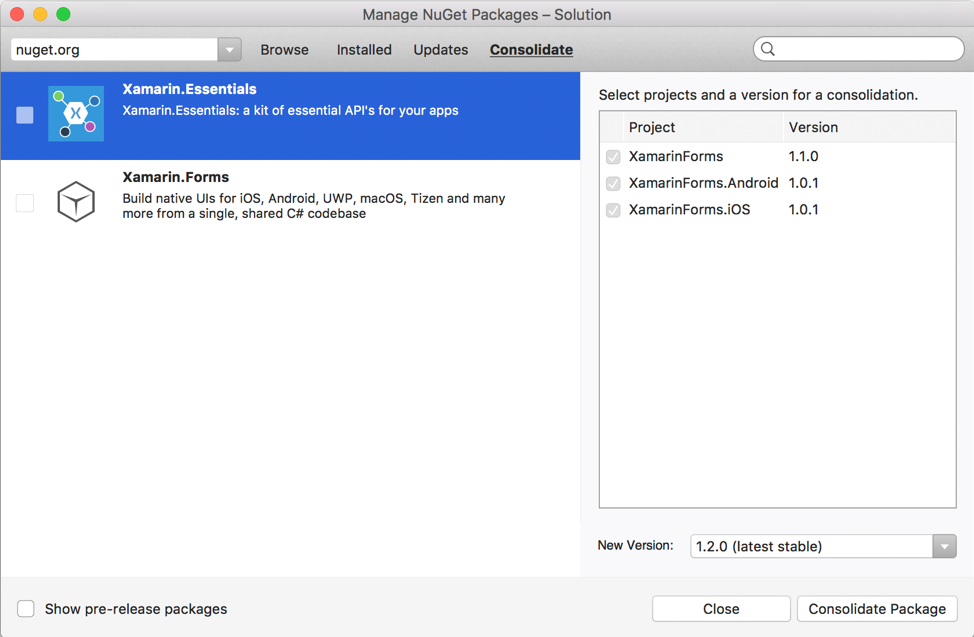
- Visual studio for mac early versions pdf#
- Visual studio for mac early versions update#
- Visual studio for mac early versions windows 10#
- Visual studio for mac early versions pro#
In a few months, it should be possible to develop and test our Windows SDK with Visual Studio on M1 with reasonable performance results.
Visual studio for mac early versions windows 10#
Windows 10 on ARM can emulate x86 applications, and Microsoft is working on 圆4 emulation, which is already rolling out in Insider builds. Microsoft currently doesn’t sell ARM-based Windows, so getting a license will be interesting. Various proofs of concept already exist, and performance seems extremely promising. I expect that, eventually, we’ll be able to run ARM-based Windows with commercial tooling. I don’t expect VirtualBox to be updated anytime soon. However, both VMware and Parallels are working on it. Currently, none of the Mac virtualization solutions support Apple Silicon.
Visual studio for mac early versions pdf#
To test our Windows PDF SDK, most folks are using a VMware virtual machine with Windows 10 and Visual Studio. We at PSPDFKit will have some work to do to add ARM support (something already on the roadmap), so this is only a transitional issue. I expect a solution that runs ARM-based containers in Q1 2021. There are more hacky ways to use Apple’s Hypervisor to run Docker containers manually, but they need ARM-based containers.
Visual studio for mac early versions update#
Docker posted a status update blog post admitting that its client currently won’t work with Apple Silicon, but that the company is working on it. We use Docker to automate our website and load environments for our Web and Server PDF SDKs. Update 4 (May 2021): This is now fixed with Xcode 12.5 and macOS 11.3. Update 3: Great news! The WebKit crash when running on Rosetta 2 will be resolved with a future update in Big Sur. As a workaround, ensure at least one Simulator window is onscreen and visible. Update 2: I’ve heard that the choppy mouse cursor is an Xcode/Simulator bug, and it’s currently being worked on. Performance seems acceptable if you restrict parallel testing to, at most, two instances - otherwise, the system simply runs out of RAM and swapping is really slow. This isn’t great, but luckily we’re not using WebKit a lot in our current project. Update: We’re working around the WebKit crashes for now via detecting Rosetta 2 translation at runtime and simply skipping the tests where WebKit is used. There is a chance that Apple fixes these issues, but it’s not something to count on - given that this only affects older versions of iOS, the problem will at some point just “go away.” With our current schedule, we plan to drop iOS 12 in Q3 2021 and iOS 13 in Q3 2022, so it’ll be a while before we can fully move to Apple Silicon. However, it seems we’ll have to restrict tests to iOS 14 for that to work. We were extremely excited to be moving our CI to Mac minis with the M1 chip and are waiting on MacStadium to release devices. Some simulators even make problems on iOS 14 an example of this is iPad Air (4th generation), which still emulates Intel, so try to avoid that one. Performance also seems really bad, with Xcode periodically freezing, and the whole system becoming so slow that the mouse cursor gets choppy. It seems WebKit crashes in a memory allocator, throwing EXC_BAD_INSTRUCTION (code=EXC_I386_INVOP, subcode=0x0) (Apple folks: FB8920323). Moving the simulator to the same architecture as shipping devices will be beneficial and will help find more bugs.

Our tests mostly ran just fine, although I found a bug specific to arm64, which we missed before, as we don’t run our tests on actual hardware on CI. Apple’s last experiment with fanless MacBooks was the 12-inch version from 2017, which builds the same project in 41 minutes. One can’t overstate how impressive this is for a fanless machine. For comparison, my Hackintosh builds the same in less than 5 minutes.
Visual studio for mac early versions pro#
Compiling the PSPDFKit PDF SDK (debug, arm64) can almost compete with the fastest Intel-based MacBook Pro Apple offers (to date), with 8:49 minutes vs. I bought a MacBook Air 16 GB M1 to see how viable it is as a main development machine - here’s an early report after a week of testing.


The excitement around Apple’s new M1 chip is everywhere.


 0 kommentar(er)
0 kommentar(er)
